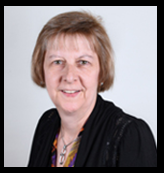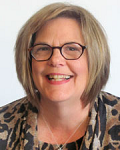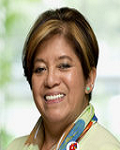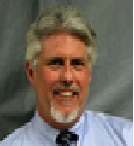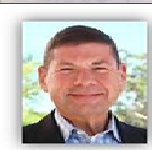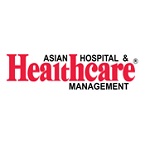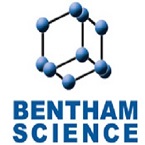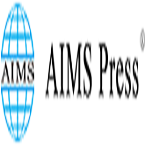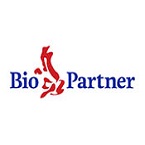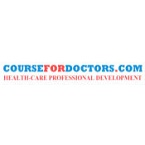About Conference
Nursing Education-2022 Toronto, Canada(Hybrid Event) Conference invites everyone operating within the field of nursing to attend 25th International Conference on Nursing Education & Nursing Profession a 2-day event regular throughout September 27-28, 2022 within the world's most inhabited metropolis Canada. It includes keynote shows, oral shows, video shows, poster shows, exhibition, symposia, and workshops.
In today’s progressively complicated care setting your career and level of patient care depend upon your ability to any your education and skills. a method you'll be able to extend your data and enhance your skills is thru attending and taking part in numerous nursing conferences that incorporates researchers round the world. You’ll be able to begin together with your state nursing association’s annual conference or by locating a conference specific to your space of clinical experience. So, if you're a nurse United Nations agency is searching for ways that to continue your education, broaden your networking capabilities, and enlarge your skilled experiences browse on to search out a lot of concerning the advantages of nursing conferences.
Nursing Education-2022 is one among the inhabited nursing conferences are visited by all the eminent nurses, nurse clinician, Registered Nurses, postgraduates, affiliations, care doctors, and care specialists beneath a solitary upper side. Nursing Education-2022 can facilitate in frameworks organization, B2B teaming up amidst specialists and academicians. we've got handled varied compelling nursing events and care gatherings and develop unimaginable relations transferal the researchers and associations along.
Conference Series LLC Ltd deals with a gathering course of action of 1000+ world Events thorough of 300+ Conferences, 500+ coming and former Symposiums and Workshops in USA, Europe and Asia Pacific with support from one thousand a lot of wise social requests and disseminates 700+ Open get to journals that contain more than 30,000 unmistakable personalities, reputed specialists as article board people.
Why to attend?
Participating in nursing conferences offers you the simplest way to fulfil, move and build contacts with alternative consultants in your space of specialization. Most conferences can have authors, researchers, or clinicians United Nations agency square measure recognized consultants in their field. Many times, you may get an opportunity to move with these people in a very question and answer format. this suggests you may have a period chance to possess your queries answered by those with an evidenced record. Moreover, you'll be able to network with nurses from alternative locations throughout the country to examine however they approach similar dilemmas you face and develop new skilled relationships. Before you attend the conference it’s a decent plan to form your business cards thus you'll be able to simply share your contact info to others.
Continuing education and talent development – nursing conferences provide an opportunity for you to be told concerning many instructional advancements in one place. shows square measure designed to introduce you to new technologies, and additionally they trained you to use new instrumentality, or give you with the chance to attend break-out sessions wherever you find out about the newest advances in your speciality space. Contemplate nursing conferences to be a one-stop chance to urge up-to-date with the newest technologies and practices.
Career advancement – maintaining with new advances within the profession can assist you to advance your career and doubtless enable you to earn extra money. Employers prefer to see that you just square measure committed to your job and attending conferences is a method you'll be able to show your leader that you just square measure long learner. Some conferences give you special coaching sessions for brand spanking new instrumentality or technologies that may profit the patients and unit wherever you're employed. Take benefits of those opportunities by volunteering to be the lead trainer for brand spanking new technology on the unit wherever you're employed. The new skills you'll be able to acquire might facilitate train alternative workers members in your unit, receive employment promotion or expose you to new business opportunities.
Target Audience:
Nursing school
Nursing Researchers
Nursing Students
Healthcare Associations and Societies
Business Entrepreneurs
Manufacturing Medical Devices corporations
Sessions & Tracks
1. Nursing Education
Nursing Education consist of practical and theoretical knowledge provided to nurse’s students who are the aim to educate them for their duties as nursing care professionals in the coming future. This education is provided to nursing students with the help of most experienced nurses and different medical professionals who are qualified and experienced for their academic tasks. It reflects the nurse educator competencies are developed by national organizations and is comprehensive in nature. Most countries provide nursing education courses that can be relevant to general nursing or to specialized areas as psychological nursing, pediatric nursing, oncology nursing and post-operatory nursing. The curriculum integrates core master’s-level concepts, advanced clinical foundation and education-focused courses. The nursing education major is delivered through an online asynchronous format that allows participate in courses at your own convenience. One way to market development is to clarify the professional role. The role definition for nursing is generally transmitted through tacit knowledge. We consider that the professional development of the nursing profession requires a clear and well-defined nurse role.
Nursing Students
Further Nursing Education
Nursing PhD Graduates
2. Nursing Leadership and Management
Nursing Management contains of the execution of the authority parts of administration and basic leadership within associations utilizing medical attendants. It incorporates forms traditional to all or any administration like arrangement, searching for, staffing, coordinative and dominant. sometimes for listed attendants to appear for additional coaching to win Associate in Nursing ace of Science in Nursing or Specialist of Nursing follow to set up for positions of authority within nursing. Administration positions increasingly expect risk to carry a propelled degree in nursing. Nurse leaders aren't as task-oriented as nurse managers, but rather focus on setting and upholding standards. Their role is to satisfy the organization’s vision, mission, and long-term plan. The majority of their efforts are toward setting policy, overseeing quality measures, spearheading transformation, fiscal responsibilities and ensuring regulatory compliance. Both staff and management see them as individuals with expertise, knowledge, experience and vision. Nurse leaders play a critical role in making certain that every employee uphold a standard that best represents the organization. Their titles could differ, but nurse managers and nurse leaders complement each other in more ways than one. Well-respected people who are passionate and admired by their staff fill both positions.
Nursing Management
Nursing Organization
Nursing Training Center
Nursing Institute
3. Nursing Informatics
Nursing Informatics is the specialty that integrates nursing science with multiple information management and analytical sciences to identify, define, manage, and also communicate information, knowledge, and wisdom in nursing practice. Nursing informatics supports nurses, consumers, patients, the interprofessional healthcare team, and different stakeholders in their decision-making altogether roles and settings to attain desired outcomes. This support is accomplished through the use of different information structures, processes and technology. Technologies that have evolved due to health care/nursing informatics include Computerized Provider Order Entry (CPOE), Electronic Medical Records (EMRs), Test results, Progress notes, Nursing notes and Medication records.
Nursing Competencies
Computer Skills in Nursing
Informatics Knowledge in Nursing
4. Advanced Practice Nurse
Advanced Practice Nurse is a registered nurse who has acquired the expert knowledge base, complicated decision-making skills and clinical competencies for expanded practice. The characteristics of which are formed by the context of their country in which they are credentialed to practice. They perform tasks once reserved for medical doctors. They assist different medical professionals and manage patient care, and many specialize in fields such as pediatrics, oncology, and family medicine. There are several opportunities in advanced practice nursing with the current nursing shortage and demand for qualified health professionals. APNs not only make a good living and work in a time of nursing opportunity. They also get pleasure from the daily reward of serving to patients recovering from their illness to recovery.
Certified Nurse-Midwives
Certified Registered Nurse Anesthetists
Clinical Nurse Specialists
Nurse Practitioners
Certified Hospice and Palliative Licensed Nurse
MSc Nursing Students
5. Community Health Nursing
Community Health Nurses sometimes are also called Public Health Nurses. Community Health Nurses or Public Health Nurses are registered nurses who are trained to work in public health settings such as county or state health departments, schools, jails, and businesses. One of the primary functions of a community health nurse is to spot health issues within the community and to supply health care to patients who might not have access to, or be able to afford, medical services. Because of their roles within the community as caregivers, they often form close bonds among the communities they serve and form lasting relationships. By improving poor health practices and maintaining safe home or work surroundings by providing patients’ lower risks to their health and require fewer visits to health care facilities. The goal of a community health nurses is to educate patients through community-based intervention programs which will identify and improve multiple health problems.
Ambulatory and Emergency Care Nursing
Occupational Health Nursing
Public Health Nursing
Social Outreach and Homeless Nursing Programs
Environment, Health and Safety
6. Clinical Nursing
Clinical Nurse Specialists (CNS) are advanced practice registered nurses that serve as experts in evidence-based nursing practice within one of a number of different specialty areas. They integrate their advanced knowledge of disease processes in assessing, diagnosing, and treating patient diseases, however their role extends beyond providing patient care. The fundamental goal of clinical nurse specialists is to provide safe, qualify, and cost-effective specialty care, all while working to improve the healthcare system from within. Clinical nurse specialists work in a variety of clinical practice areas such as population, type of care, type of problem, disease/medical subspecialty and setting.
Clinical Nurse Specialists
Clinical Nurse Specialist vs. Clinical Nurse Leader
Credentials and Practice Requirements
Educational Preparation and Certification
Scope of Practice
7. Midwifery and Women Health Nursing
Nurse midwifery is a nursing specialization managing pregnancy, labor, and postpartum issues. As a midwife nurses will have to work with mothers to ensure their safety throughout the childbirth process likewise as the safety of their newborn child. Increasingly, parents are choosing to use the services of nurse midwives in place of or along with OB-GYN providers for traditional births. Certified nurse midwives (CNMs) are a kind of advanced practice registered nurse that can be found in hospitals, birthing centers, non-public practices, and as a part of larger healthcare organizations. CNMs are completely different from other kinds of midwives are certified midwives and direct entry midwives because they bring advanced education and experience to their practice. CNMs are legally to have authority to prescribe medication and are considered primary care providers under federal law.
Health care of women and primary care
Midwifery integration
Health care of childbearing women
8. Diabetes Nursing
Diabetes or Diabetes Mellitus is a metabolic disease where blood glucose levels are abnormally high. There are three types of diabetes of Type 1 Diabetes, Type 2 Diabetes and Gestational diabetes. A diabetes nurse is the nurse who specializes in the care and management of patients with diabetes. They can be registered nurses, advanced-practice nurses, or nurses working in an expanded role. They can manage patients with both Type I and Type II diabetes, as well as women with gestational diabetes. Diabetes education can be one on one with patients, or via a group class. Diabetes nurse educators must also reach patients about the importance of diet and nutrition
Minimize diabetic nerve damage
Nutritional therapy
Levels of Disasters
9. Gastroenterology Nursing
Gastroenterology is an area of medicine that focuses on the health of the gastrointestinal system, or the gastrointestinal (GI) tract. Gastroenterologists will treat everything from irritable gut syndrome (IBS) to hepatitis C. Gastroenterologist perform endoscopic procedures in which they use specialized instruments to view the GI tract and make a diagnosis. Gastroenterology Nurse is a registered nurse who specializes in illnesses and disorders related to the entire gastrointestinal tract. Gastroenterology nurses also assist physicians with procedures, education, and treatments. Some of the disorders they are familiar with are Constipation, Acid reflux, Crohn's disease, Celiac Disease, Food allergies and Irritable Bowel Syndrome.
Gastrointestinal Pathology
Gastrointestinal Oncology
Gastrointestinal Radiology
Gastrointestinal Disorders
10. Oncology Nursing
Oncology is the study of cancer. An oncologist is doctor who treats cancer and provides medical care for a person diagnosed with cancer. The field of oncology has three major areas such as medical, surgical and radiation. An Oncology Nurse is a registered nurse who cares for and educates patients who have cancer. Oncology nurses work in a multi-disciplinary team, in a variety of settings, from the inpatient ward, to the bone marrow transplant unit, through to the community. They may work with a variety of patients, from children to the elderly, from outpatients through to palliative care.
Create management strategies
Cancer prevention counselling
Maintain health records
11. Dermatology Nursing
The field of dermatology is incredibly important to a patient's overall health since the largest organ of a human body is skin. Dermatology nurses work specifically in the treatment and care of patients with diseases, wounds, injuries, and different skin conditions. Dermatology Nurses have the ability to work in a wide range of settings, including, but not limited to, private practice offices, hospitals, infusion centers, clinics, plastic surgeons’ offices, and burn centers. However, specific roles and responsibilities include assist in the performance of skin exams for skin cancer, monitor and record a patient's medical history along with its test results, providing pre- and post-operative care for patients undergoing treatment, perform and assist with cosmetic dermatology procedures, monitor and treat skin wounds and educate patients on how to protect their skin.
Laser treatments
Burn units within hospitals
Dermatology practices
Proper diet, exercise, and lifestyle
12. Palliative care nurses
Palliative care nurses provide compassionate nursing care to patients with chronic or terminal illnesses. They help patients with pain and symptom management to ensure that they carry out their final days in comfort. These nurses work in hospitals, nursing homes, assisted living facilities, and private homes, or wherever a patient requires this type of care. They also often provide emotional support to the patient and their friends/family.
Advanced Certified Hospice and Palliative Nurse
Certified Hospice and Palliative Nurse
Certified Hospice and Palliative Pediatric Nurse
Certified Hospice and Palliative Nursing Assistant
13. Dental Nursing
Dental nurses work alongside dentists to complete oral exams and surgeries. A dental nurse is an important a part of the dental team, serving to ensure that the patient is well cared at the time of visit. The role of dental nurses is to be friendly, calm and economical and welcoming nature towards the patients visiting the clinic. They always work closely with the dentist by providing help throughout a patient’s visit. Assisting the dentist encompasses a wide range of procedures from preparing the various materials required and ensuring the proper instruments and equipment are available to cleaning and sterilizing the used instruments.
Dental Surgery
Dental Hygiene and Dental Therapy
Dental Technology
Chemical peels
14. Pediatric Nursing
Pediatrics is that the branch of medicine dealing with the health and treatment of infants, children, and adolescents from birth up to the age of eighteen. Pediatric Nursing presents information that's both theoretically and clinically relevant to teach the novice which enrich the scholarly person and advance the pediatric specialist toward providing health care of the highest quality to the patients. Pediatric nurses are very knowledgeable about the growth and development as they adapt their interactions to child’s developmental level. In addition, they acknowledge the expertise of the family and collaborate with them to provide care for the kid. Diseases, equipment, and treatments for pediatric patients are either different or vary in presentation from those of adults for children are unique, not miniature adults.
Pediatric Pulmonology Nursing
Pediatric Immunology Nursing
Pediatric Urology Nursing
Pediatric Ophthalmology Nursing
Pediatric Physiotherapy Nursing
Pediatric Robotic Nursing
15. Evidence-Based Nursing
Evidence-based nursing (EBN) is a method of making quality decisions and providing nursing care that is based on personal clinical experience combined with the most up-to-date, relevant research. This strategy is built on the foundation of evidence-based practice (EBP). In nursing, evidence-based practice (EBP) is the combination of research findings, clinical experience, and a patient's preferences. Nurses are encouraged to deliver tailored patient care using this problem-solving approach to clinical practice. EBP in nursing provides nurses with the scientific evidence they need to make well-informed decisions. Nurses can use EBP to keep abreast of the latest medical procedures for patient care.
Evidence based practice
16. Mental Health and Psychiatry Nursing
Mental health is defined as a state of every individual to realizes his or her own potential who can work productively and fruitfully, who can cope with the conventional stresses of daily life and are able to make a small contribution to the society. Psychiatry is the branch of medicine focused on attempts to define, understand, and categorize mental, emotional, and behavioral disorders, and determine the best treatments, the medical specialty of psychiatry is always up against the deep complexity of the human brain. Psychiatric mental health registered nurses work with people, families, groups, and communities, assessing their psychological state needs. The PMH nurse develops a nursing diagnosing and set up of care, implements the nursing process, and evaluates it for effectiveness.
Regular hospitals
Psychiatric hospitals
Home health care organizations
Outpatient mental health organizations
17. Cardiac Nursing
Cardiac or Cardiovascular Nurses are registered nurses who specialize in providing care to people with disease related to heart and blood vessels. Cardiovascular nurses are among the foremost sought-after health care professions. Although most cardiovascular nurses work in hospitals and also, they offer a wide range of services in multiple settings. Cardiac nurses use their expertise to care for patients of different ages groups. The geriatric population proportionally receives the foremost care that cardiovascular nurses provide. However, some cardiovascular nurses specialize in the care of newborns and children. Cardiovascular nurses assess, plan, implement and evaluate health care services for patients suffering from genetic malformations, myocardial infarctions and vascular diseases. They provide services to people suffering from many other cardiac ills as well. Patients may have abnormal heartbeats or heart valve problems. They may suffer from fluid buildup and have high blood pressure.
Cardiac Nursing Education and research
Cardiac Nursing Care
Cardiac Nurse Practitioners
Cardiac Nurse Practitioners
Cardiac Surgical Nursing
18. Medical Surgical Nursing
A surgical nurse is also known as Perioperative Nurses or Operating Room Nurses, who is a health care professional who specializes in proving before, during and after surgical care to patients. Perioperative (surgical) nursing is a dynamic and challenging field that gives several opportunities for learning and professional growth of each individuals. Surgical nurses facilitate surgical technicians prepare and organize the operation room. They still require a knowledgeable and proficient team to pull off a successful surgery, as one slip or mistake throughout these procedures can mean the difference between life and death.
Surgery Nursing
Surgery Care Nursing
19. Critical care and Emergency Nursing
Emergency Nursing is a specialty during which nurses look after patients within the emergency or critical phase of their illness or injury and are adept at discerning life-threatening issues, prioritizing the urgency of care, rapidly and effectively carrying out resuscitative measures and alternative treatment, acting with a high degree of autonomy and skill to initiate required measures without outside direction, educating the patient and his family with the information and emotional support needed to preserve themselves as they deal with a brand new reality. These activities are also carried out in a exceedingly in a very variety of settings and not necessarily in an emergency room. An Emergency Nurse is characterized by high degrees of knowledge and skills, with diagnostic and decision-making power to effectuate urgently needed activities in autonomous fashion or within the closely-collaborative team approach with other health professionals. Typically, associate Emergency Nurse is capable of providing a broad spectrum of skills that in other settings would be delegated to alternative health care employees.
Types of Disasters
Types of Disasters
Emergency Nursing Care
Mobile Nursing
20. Telemetry Nurses
Telemetry Nurses, or TELE, are specialists in the monitoring of patients requiring a high degree of vigilance. These are often patients who have been released from Intensive Care, those on essential life support following a serious illness, or those in whom a heart condition is suspected or diagnosed. RNs in the Telemetry Unit are responsible for comfortably and accurately connecting patients to machines to measure heart rate, breathing, blood pressure, and collect electrocardiogram data.
The Benefits of Telehealth and e-Medicine
The Business of Telehealth and e-Medicine
Telehealth and e-Medicine Applications
21. Endocrinology Nursing
The conference provides a comprehensive guide for nurses practicing in any area of endocrinology and at any level of expertise. Endocrinology Nursing is a fast-developing specialty with nurses performing advanced roles and expanding their practice to run independent nurse-led services. It is also an excellent resource for endocrinology specialty trainees, general practitioners, medical and nursing students, expert patients and nurses working in specialties such as fertility, osteoporosis, oncology, obesity, urology and gynecology, who look after patients with endocrine-related disorders. This conference providing a comprehensive overview of adult and paediatric endocrinology but also a section on advanced practice, role development and nursing research. It has been conducted by an international team of more than 100 eminent nurses, physicians, surgeons, psychologists and other healthcare professionals. Many patient advocacy groups have contributed with case studies which emphasises the close working relationships with patients.
22. Gerontological Nursing
Gerontological Nursing provides an opportunity to explore the challenges of aging through the lens of transitions. They examine how aging adults respond to transitions such as health challenges, changes in living environments, existential issues, family issues, and dying and death. While physical health issues are addressed, the major emphasis lies in how older adults understand and process transitions in older years and how nurses can facilitate the process for their patients or clients and family members. We also examine the challenges faced by emerging sub-populations of aging adults, such as those with developmental disabilities, the incarcerated, the homeless, as well as those with HIV/AIDS.
Nursing in an Aging Society
Physiological Changes in Aging
Mental Disorders
Legal and Ethical Issues
Aging Families
23. Health Promotion & Nursing care
Health Promotion & Nursing care is the process of enabling people to increase control over, and to improve, their health. Healthy City is a kind of movement that is a way to achieve health promotion at municipal levels. Health Promotion focuses on creating healthy settings—schools, workplaces, homes, and public places. Health promotion is the way to go. If somebody wants an in-depth understanding of why people make health decisions and engage in health behaviors, then Health Promotion is a great area to study. Health Promotion is a great background to study as one is looking for a career to impact the healthcare field, such as medicine, public health, nursing, etc. If someone is looking to learn to implement, design, and evaluate health promotion programs, Health Promotion is highly beneficial. Should everyone study Health Promotion? I don’t think so. Someone should lead these efforts for them to be productive and effective. Everyone aware of the secrets of improving health; they’ll develop a way to resist it or make themselves impervious to its methods, theories, and models (if that makes sense). Although it knows Health Promotion can help people in terms of preventative health and awareness.
24. Coronavirus Deadly Impact on Humans
It’s not hidden at all how the coronavirus has affected the world. It is not restricted to one city, country, but the whole world and Researchers are working day and night to find the cure for this deadly virus. Few countries claimed that they had discovered it but how far it is working is still unknown. Cases of Covid-19 are increasing day by day, and the top ten badly affected countries are the USA, India, Brazil, Russia, Colombia, Peru, Mexico, Spain, Argentina, South Africa. The graph of cases may increase or decrease in the future if the people follow the guidelines as per the World Health Organization (WHO);
1. Maintain at least 1 meter of distance with others whether they are affected or not because you can’t predict coronavirus’s initial stage. Maintain even more distance when you are indoor.
2. Do not touch your face, eyes, nose at any cost without washing or sanitizing your hands.
3. While stepping out, you must put on your mask while you return.
4. Clean your hands before and after wearing your mask.
5. Make sure to cover your mouth, nose, and chin properly.
6. While talking, doesn’t put your mask down.
7. Avoid Gatherings and indoor areas.
Most important is eating healthily, do exercises, maintain social distance, cover your face while sneezing with a hanky; if not available, use your elbow.
Don’t panic at all, follow the safety guidelines, and stay at home.
Types of coronavirus, Covid-19, Coronavirus Updates, Healthy Advice, Coronavirus Disease, Coronavirus News, Coronavirus Testing, Coronavirus Vaccine, Coronavirus Symptoms, Coronavirus Treatment, Coronavirus Tips, Coronavirus Map, Coronavirus Worldometer, Coronavirus Vaccine Tracker, Coronavirus Pandemic, Coronavirus Cases, Deadly Disease, Respiratory Disease
Market Analysis
Market Analysis
25th International Conference on Nursing Education & Nursing Profession
Date : September 27-28, 2022 (Theme: Transforming Education & Profession: Future of Nursing )
Conference Series is a renowned organization that organizes highly notable conferences throughout the globe. Currently we are bringing forth “25th International Conference on Nursing Education & Nursing Profession” (Nursing Education-2022) scheduled to be held during September 27-28, 2022 at Toronto, Canada(Hybrid Event). The conference invites all the participants across the globe to attend and share their insights and convey recent developments in the field of Nursing Congress and Clinical Trials.
This year Nursing Education-2022 meeting makes a stage for specialist’s cooperation at the same time it is a global platform to discuss and learn about exchange research evidence, innovative ideas and models of best practice. Nursing Education-2022 covers a wide range of nursing topics such as Nursing Education, Nursing Practice, Healthcare Management, Nursing Types, Pediatric Nursing, Midwifery and maternal aid, Community Nursing, Emergency Nursing, Clinical Nursing, Mental Health Nursing, Critical care Nursing.
Importance & Scope of Nursing Education:
Cancer nursing Congress 2022 will be the best stage for every one of the oncologists, hematologists, Pathologists, Radiologists, Academics, Registered Nurses, explores researchers, understudies who are working in this field to trade their insight identified with Cancer and treatment. This worldwide occasion is a push to comprehend the fundamental organic methodology which is revised to build adequacy, exactness, survivability, and nature of life. Experts will clarify how another era of treatment choices gives patients new trust in the battle against disease. Geographically, the worldwide disease treatment market is ordered into areas to be specific, North America, Latin America, Western Europe, Eastern Europe, Asia-Pacific, Japan, Middle East and Africa .North America takes the biggest share of worldwide malignancy treatment advertise took after by Europe.
Cancer is the second leading cause of death worldwide and in all regions of the world except sub-Saharan Africa. Historically, the USA had a much lower incidence of cancer than other countries; however, over the last 40 years, it has undergone a period of dramatic economic, social, and demographic change, resulting in increased life expectancy and prosperity.
Cancer, which is now the third leading cause of death in the USA (after cardiovascular disease and injury) causing 30% of all deaths in 2012 and 46% of all deaths in the France during the same year. The incidence of all cancers is projected to double by 2022, primarily due to ageing and also possibly due to increased exposure to risk factors for cancer. Breast cancer is the most common cancer among Paris females (and the most prevalent cancer in both sexes combined), lung cancer is the most common cancer amongst Paris males but is extremely rare in females, which reflects the prevalence of smoking (33.0% vs. 0.5%, respectively), and colorectal cancer is the second most common cancer.
Approximately 12.7 million cancer cases and 7.6 million cancer deaths are estimated to have occurred in 2016; of these, 56% of the cases and 64% of the deaths occurred in the economically developing world.
Why Australia?
The Australian Nursing and Midwifery Federation (ANMF) certify nurses in three categories: Certified Nurse, Certified Nurse Administrator and Certified Nurse Specialist. All three levels of certification require that the nurse pass the national nursing examination as well as a certification test administered by the ANMF. Certifications must be renewed every five years. Requirements of nursing education in Australia are that candidates have completed twelve years of basic academic study and then three years of basic nursing education. Public health nurses and midwives require a minimum of one additional year of specialized study. After completing their studies, students must pass the national licensing examination and obtain a license from the Minister of Health, Labor, and Welfare in the case of nurses, or from the prefectural governor, for nurse assistants. Foreign nurses who wish to work in Australia are required to pass the licensing examination and obtain a Australian Nursing and Midwifery Federation license.
Certified Nurses (CN) are required to take six months training in cancer and chemotherapy nursing, emergency care, hospice care, intensive care nursing, wound, ostomy, and continence nursing, and pain management nursing,[15] after completion of their basic nursing licensing. As of July 2015, nearly 16,000 CNs were working in Australia in various specialties including cancer care, chronic care, dementia nursing, diabetes nursing, dialysis nursing, emergency care, heart care, infection control, infertility nursing, neonatal care, rehabilitative care, respiratory care, and other specialized fields
Certified Nurse Administrators (CNA) are required to complete a master’s program in management at a graduate school or university or a certification from a nurses training education program.
Certified Nurse Specialists (CNS) are required to complete a master’s program for specialized fields, including Cancer Nursing, Child Health Nursing, Chronic Care Nursing, Community Health Nursing, Critical Care Nursing, Family Health Nursing, Gerontological Nursing, Home Care Nursing, Infection Control Nursing, Psychiatric/Mental Health Nursing or Women's Health Nursing, after obtaining their national licensing. In addition, certification requires a minimum of five years clinical experience.
Associations and Societies in Australia:
Australian and New Zealand College of Mental Health Nurses
Australian College of Critical Care Nurses
Australian College of Midwifery Incorporated
Australian Neonatal Nurses Association
Australian Nursing Council Inc.
Australian Nursing Federation
Nursing Council of New Zealand
Royal College of Nursing Australia
Market growth of Nursing Research in the last and upcoming ten years:
The past three decades have witnessed a remarkable growth in nursing development. In both Korea and the United States, nurse scientists are poised to address important issues related to the prevention and management of significant health care problems. The need for greater nursing development in the areas of self-management, genetics, and geriatrics, health promotion across the lifespan, technology, and mental health are briefly highlighted. Future research efforts will be enhanced by interdisciplinary collaboration and the creation of international nursing research centers. At the same time, we need to remain cognizant of the importance of mentoring future nursing education.
Non-Federal Research Associations and Foundations:
Oncology Nursing Society Foundation
American Nurses Foundation (ANF)
National Institute of Nursing Research (NINR)
Sigma Theta Tau International Honor Society of Nursing (STTI)
Universities in Australia
University of Technology Sydney
The University of Sydney
Monash University
Dakin University
The University of Melbourne
The University of Adelaide
The University of Queensland
Flinders University
La Trobe University
University of Tasmania
Western Sydney University
University of South Australia
The University of Newcastle
Nursing Universities Globally:
CMC Vellore College of Nursing
Duke University School of Nursing
Yale School of Nursing
School of Nursing, University of Washington
School of Nursing, University of Michigan
University of Edinburgh Nursing School
School of Nursing Johns Hopkins University
School of Nursing, Midwifery and Social Work at University of Manchester
School of Nursing, University of Pennsylvania
University of Toronto
Karolinska Institute
King's College London (KCL)
University of Manchester
Associations and Societies globally
Canadian Nurses Association
Indian Nursing Council
Japanese Nursing Association
Nursing Association of Nepal
Nursing Council of New Zealand
Nursing and Midwifery Council
New Zealand Nurses Organization
Philippine Nurses Association
Philippine Nurses Association of United Kingdom
Nursing & Midwifery Council United
Sigma Theta Tau International Honor Society of Nursing
Targeted Audience
Nurse Practitioners / Registered Nurses / Nurses, Nurse Associations, Physicians, Healthcare Scientists and Professors, Health Care Researchers, Oncologists / Pediatricians / Surgeons/ /Hospital Nurse staff/Faculty of Nursing.
Asia Pacific:
Asia Pacific is expected to grow at the fastest CAGR of 6.2% over the forecast period owing to the increasing number of people diagnosed with chronic illnesses. Moreover, international care homes are also investing in countries such as India and Japan. For instance, in October 2013, BAYADA Home Health Care, a home healthcare giant based in the U.S. acquired 26% stake of India Home Health Care (IHHC).In India, 65% of the hospital visits can be managed at home. In May 2016, My Care Line raised USD 526,000 for its alliance with Hoffman World. The Spanish Company provides Hoffman methodology of rehabilitation. In India, Portia is one of the market leaders in the home healthcare industry. In September 2015, Portia raised USD 37.5 million for investing in better home healthcare facilities.
Competitive Market Share Insights:
Brook dale Senior Living, Inc.,
Sunrise Senior Living, Inc.,
Emeritus Corporation,
Atria Senior Living Group,
Extendicare, Inc.,
Gentiva Health Services, Inc.,
Senior Care Centers of America,
Kindred Healthcare, Inc.,
Genesis Healthcare Corp.,
Home Instead Senior Care, Inc.
http://www.grandviewresearch.com/industry-analysis/long-term-care-services-market
Statistics which shows Market growth:
The Long Term Care Market: Nursing Homes, Home Care, Hospice Care, and Assisted Living examines the most important segments of the long term care business, each of which provide medical care and/or assistance with the activities of daily living (ADLs) on an ongoing basis. Kalorama’s 6th edition of this detailed report provides a size and projection for each market segment, including the following: overall U.S. long term care industry 2011–2022 (nursing home care, home care, hospice care, assisted living, total); U.S. nursing home industry, by sales, 2011–2022; leading companies in the U.S. nursing home industry, by sales and market shares, 2015; U.S. home health care industry, by sales, 2011-2020; leading companies in the U.S. home health care industry, by sales and market shares, 2015; U.S. opportunity for hospice care, by sales, 2011-2022; leading companies in the U.S. hospice market, by sales and market shares, 2015; U.S. opportunity for assisted living, by sales, 2011-2022; leading companies in the U.S. assisted living opportunity, by sales and market shares, 2015; long term care market sales by year, 2011, 2015, 2022; and long term care market revenues by major company, 2015 (nursing home care, home care, hospice care, assisted living, total).
http://www.marketresearch.com/Kalorama-Information-v767/Term-Care-9820056/
Industry Report - Industry SWOT Analysis Chapter
The Nursing Facilities industry is in the mature stage of its life cycle. Over the 10 years to 2022, industry value added (IVA), which measures the industry's contribution to the US economy, is expected to grow at an average annual rate of 3.4%. This growth rate indicates that the industry will expand faster than GDP, which is projected to increase at an annualized rate of 2.2% over the same period. While demographic trends will continue to promote industry growth, nursing care facilities have been part of American communities since the early 20th century.
Industry Analysis & Industry Trends:
Over the five years to 2022, the industry is expected to continue expanding. Continued aging of the population, which is expected to accelerate over the five-year period, will drive industry growth.
Global Skilled Nursing Care Services Market, By Type of Connectivity-
Connected to hospital
Connected to assisted living community
Connected to both hospital and assisted living community
Freestanding
Major regions analyzed under this research are:
Europe
North America
Asia Pacific
Rest of the World
Australia
Bibliography:
http://www.grandviewresearch.com/industry-analysis/long-term-care-services-market
https://www.ibisworld.com/industry/default.aspx?indid=1594
http://www.nursingdegreeguide.org/articles/types_of_nurses/advanced_practice_nursing_apn/
https://blogs.utmb.edu/researchresources?s=nursing
http://nursingworld.org/research-toolkit/Research-Funding



